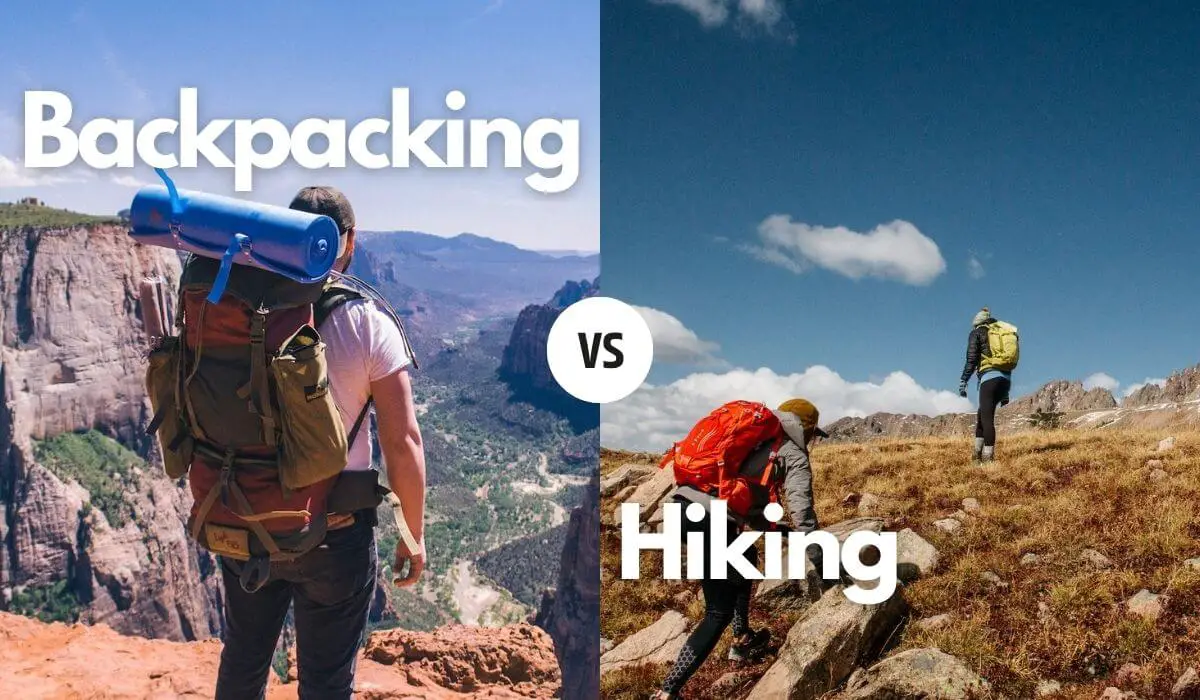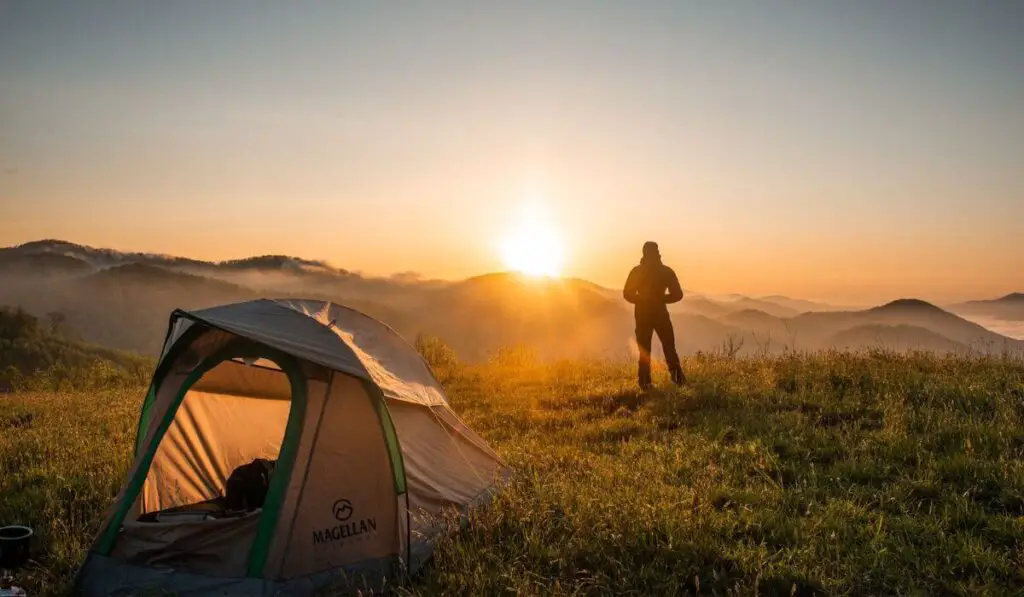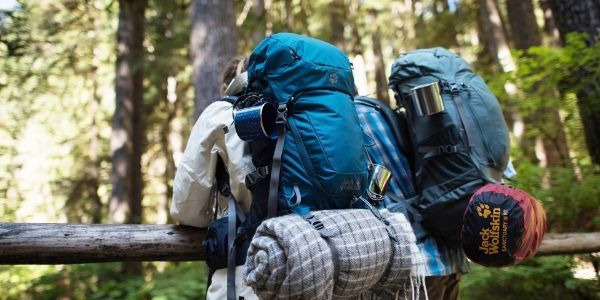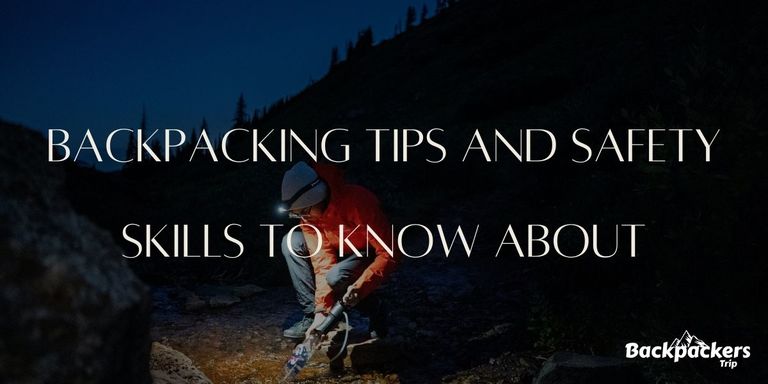Backpacking vs. Hiking – Consider the Differences and Decide Which One Suits You Best

If you are here for the first time searching for backpacking or hiking, this is for you. Although the terms ‘hiking’ and ‘backpacking’ often offer the same interpretation to people less familiar with the traveling phenomenon, there should indeed be an apparent dissimilarity between these as the title talks about backpacking VS. hiking.
Day hiking is a recreational activity of wandering while the daylight lasts. Equipping a minimal load for a one-day trip is what is believed to be hiking in civil society. On the contrary, backpacking is more of a specific kind of hiking, referring to overnight hiking or hiking for days at once, having a backpack full of vital necessities for an extended period. In short, Hiking refers to the general segment of strolling, and backpacking is to move with living vitals on the back when you are hiking for days together.
Before embarking on a trip, you must clearly understand these two as they both appeal individually. If you plan to have a light diversion from daily life, hiking might attract you more. Then again, if you want to have adventures in nature, you might choose backpacking.
Now, let’s focus on the basic contrast part. If we are informally directing any travel-related affairs by using ‘Hiking’ or ‘Backpacking’ terms, it holds no such differences. But if we are pointing out configurations of traveling, the above terms indicate distinctive differences. Here is a definitive guide for your dilemma on ‘The differences between backpacking and hiking and which one you should choose.
Hiking

A long walk taken for recreation or exercise is known as hiking. It is a beginner-friendly, time-flexible outdoor experience. It is typically confined to a one-day trip with minimum distance covering.
The Types of Hiking
Day hiking: Hiking while the daylight lasts. It is the most common and known type of hiking. You go back to your dwelling after you achieve your refreshment or exercise goal.
Summit hiking: Hiking in the mountains. When you are climbing on a mountain as a part of your hiking, it will be called summit hiking. Reaching to the highest peak of the mountain is the main target here.
Long-distance hiking: Hiking for days with fixed accommodation. You will set your hiking spot far from your home but with a fixed nook to come back. It is more like strolling on a vacation.
Key Characteristics of Hiking
Being an excellent option for anyone and everyone, hiking allows you to gain refreshment, physical and mental betterment solely. It is best suited for you if you are looking for a short and manageable trip to add to your experience. The central principle of hiking is-
Duration of Staying:
The hiking duration is limited to a day, excluding overnight stays. The hiker draws a finishing line of his hiking after several hours and tends to come back to his territory to spend the night once he is worn out. You are to come back to your starting point after you finish hiking.
Level of skills:
A hiker can have beginner, intermediate, or advanced skills in hiking. He would choose hiking trails and hours based on his skill level. So, if you are new to this, you can still prepare for hiking.
Location of terrain:
The trail hiker chosen is mostly renowned. The pathways are usually marked, and one can easily access information on starting and finishing points along with a worked-up schedule. The trail can be a mountain trail, central park, nearby natural reserves, and so on.
Fitness of physique and mentality:
Hikers face less difficulty on this subject than backpackers. He can come back whenever he feels drowned out. Yet it takes an amount of physical strength for hiking as the core part of hiking is roaming on your feet!
Choice of lifestyle:
In hiking, there is no general form of lifestyle. But it’d be a convenience for a hiker if he can keep up a minimal lifestyle. The simpler you are, the more flexibility you have.
Ways of dependency:
Hikers often use local/community-based amenities alongside self-dependency, such as having restrooms and hotels aligned with the trail for easier accessibility.
To make it obvious, we have created a pros and cons of hiking for you.
Benefits of Hiking
Benefits of hiking include minimum planning, beginner-friendly, colossal flexibility, and less weight to carry.
Planning and preparation:
Hiking takes less effort in planning and preparation. One can even go hiking without prior preparation, just to take his mind off daily nuisances. You can simply enjoy nature and exercise.
Selection of candidates:
Anyone can go hiking. As hiking doesn’t restrict any criteria, anyone going for a long walk can be certified as a hiker. Hiking is beginner friendly and you only need to have the willpower to go hiking.
Flexibility of commitment:
Hikers might not be truly committed. He can be flexible with his dedication to strolling. Plus, if you have limited time and mobility, hiking will fulfill your desires.
Weight of equipment:
The hiker is more likely to bring light items such as water, snacks, boots, a basic survival kit, a map, etc. So, the weight he conveys is comparatively way smaller than that of a backpacker. You will have a light backpack, adding extra credits to your walking pace.
Limitations of Hiking
Hiking limitation includes smaller ground covering, less adventurous experience, and smaller natural connectivity.
Area of covering:
A hiker travels less space than a backpacker as he has to come back again. The distance remains limited all the time. There is also no room for accessing remote areas either. You won’t be able to cover as much as you want.
Intensity of adventure:
The main goal of hiking is to have experience. The power of such tales is nothing compared to backpacking. Although, it is to be sure that hiking can be a baby step in an adventurous world. You may have the safety but not the experience of exquisite starry nights, sunsets, and sunrises.
Involvement of nature:
A hiker is not connected with nature as much as a backpacker. In many cases, hiking is counted as an activity to refresh minds and not a hobby. In such cases, it ends up as a one-day activity or even with just a selfie to remember! Then again, those who thrive on hiking are genuinely connected to nature, but time and accessibility narrow down their umpteenth opportunities.
Backpacking

When one brings all the stuff he needs throughout several days of hiking, it is called backpacking. Backpacking inflates opportunities to explore, engage, and enhance your knowledge about nature and all her belongings at its finest. It is best suited for you if you often introduce yourself as an adventure lover.
Different Forms of Backpacking
Overnight or weekend backpacking: It is the most common form. When you are saving your weekends to go hiking and staying at the same spot, it will be categorized as overnight or weekend hiking.
Base camping: When setting a camp as a temporary home in a suitable space while backpacking, it will be counted as base camping.
Section hiking: Sectioning a long trail for backpacking to cover one at a time will be referred to as section hiking. You will be experiencing a series of trips over years or seasons.
Thru-hiking: It is hiking for an extended period in one go. It is similar to section hiking, but you don’t get the chance to partition your trail but have to complete it at once.
Key Characteristics of Backpacking
Nights in the wilderness, having supplies carried out for several days, diving into the core portion of nature, and digging into far-fetched areas would be highly advocating phrases for the term backpacking. The leading points of backpacking are-
Duration of staying:
Backpacking demands overnight staying in the hiking spot. The backpacker tries to find a suitable place to put up his camp and passes his nights in the middle of nature. The duration can last for days to even months. Despite the fact, you will be passing your nights away from your habitat for sure.
Level of skills:
To be a backpacker, one must be advanced in hiking. As this form of hiking needs extraordinarily strenuous activities such as strolling for days, nighttime staying, carrying weights, and so on, one should have a good grip on hiking if he plans for backpacking. You will need intense training and experience to see yourself as a backpacker.
Location of terrain:
Backpacker is more open to learning. Even if there are some popular trails for a backpacker, he is more likely to wander and attain mastery by himself. Recurrently, you will generate your own pathways to discover, and that is precisely where the most demanding ‘adventure’ will be waiting!
Fitness of physique and mentality:
A backpacker has to have complete control of his body and mindset. As he can not back off whenever he wants, he must gain excellence in physical and mental abilities to avoid any unsafe or unwanted circumstances. Hence, you have to have wizardry over both your body and mind to be a backpacker.
Choice of lifestyle:
Backpackers show a tendency to have a simple lifestyle. He must follow a minimal lifestyle, minimize dependency, and do tasks as simply as possible. If not, he is sure to fall victim to his own choices while backpacking.
Ways of dependency:
Backpackers are self-sufficient in most cases. He carries his needs with him. You are to backpack your baggage regardless whenever and wherever you go.
To make it easier, we have again made the pros and cons of backpacking for you.
Benefits of Backpacking
The benefits of backpacking start with going to remote regions, the extremity of adventure, connectivity with nature, the joy of accomplishment, and affirmation of self-assurance.
Area of covering:
The backpacker crosses places of thousands of miles. He covers more ground, explores remote regions, and can scrutinize details. You’ll be finding out more and more, inventing new blessings of nature, and exploring to the farthest as you go backpacking.
Intensity of adventure:
Backpacking opens every door to natural discovery and adventure. A backpacker undergoes a variety of incidents, which may be listed as a once-in-a-lifetime memory in his remembrance. The intensity of adventure you’ll experience here will be unparalleled.
Involvement of nature:
Backpackers are the ones who are most connected to nature and the environment. They inhale every little bit of their wandering, try to experience every little detail of mother nature, and get lost in serenity. Hence, your connection with nature will be overwhelming and not just mere tourism.
The joy of achievement:
Once you complete a backpacking venture, you’ll be over the moon, knowing your ability and worth. It will work as a validation of your self-reliance and provide you with the utmost joy of accomplishment.
Boost of self-worth:
The growth of self-worth completing a backpacking trip will not be gained easily. It teaches you to endure adverse situations, cuts off dependency, helps you to lead a simple life, and shows how to have happiness in simple things. All these will make you more confident and worthy.
Challenges of Backpacking
It includes heavy-weight carrying, unpredictable weather challenges, excellent preparation, and selected candidates.
Weight of equipment:
Backpacker packs for a number of days. He must prop up a sleeping bag, sleeping pad, cooking essentials, and camping objects, along with fundamental hiking materials. So, his backpack generally weighs more. Let alone the fact that you’ve to carry it on your back wherever you go!
Condition of weather:
Backpackers have to encounter unpredictable weather. Often, it turns into a deadly situation. In that case, he needs the expertise to overcome such problems. So, no matter what, you always have to maintain safety measures to avoid such events.
Planning and preparation:
Backpacking seeks way more planning and preparation than hiking. The backpacker has to take mental, physical, and survival prep all at once to start his adventure. Even the practice will take years of learning and experiencing.
Selection of candidates:
A backpacker is an advanced hiker. He has to go sauntering for days, blend in with nature, and acquire a wide range of knowledge and experience about hiking. So, to be a backpacker, you need to get your degree in hiking first!
Flexibility of commitment:
Backpackers can not be flexible here. He has to have complete hold of his promise. Any break of it will cause unlucky events for him. You must have to be physically and mentally fit, as there is no option for backing out.
Choosing between Backpacking and Hiking:
While choosing whether to go on a hiking or a backpacking trip, you should consider some essential points. Fitness level, time constraints, and personal preferences can be vital consideration factors.
If the situation demands proximity to nature, adventure, discovery, learning, and other similar genres, you should go for backpacking over hiking. If the circumstance urges you to get light exercise, take a short break from daily life, simply appreciate nature, diversion and so on, you will find “hiking” more inciting.
Conclusion
To summarize, the main differences between backpacking and hiking lie in time, adventure, and accommodation. By carefully considering the pros and cons of both options, you can reach your wise and ultimate decision on whether to backpack or hike. Perfectly understanding the differences and aligning those with personal goals and abilities will surely bring out the best for you.






